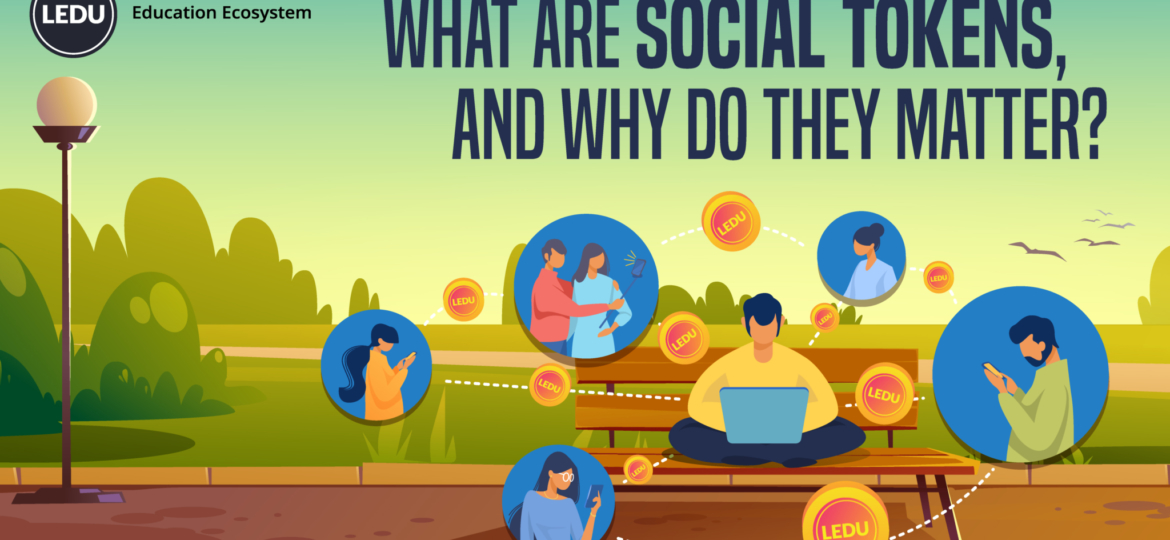
Social tokens are a new idea gaining traction in the crypto community. Several communities and individuals are launching their own social tokens for different reasons. And as the social token movement grows, it is worth noting that the idea of a community issuing its own currency is not new.
Hundreds of communities have issued their own currencies. Calgary, a city in Canada, and Belfast in Ireland have piloted their own local currencies with the intention of growing their economies through integration and incentivization. These tokens are meant to serve larger communities, but at their core, they provide a monetization mechanism for creators and entrepreneurs.
What are Social Tokens?
Social tokens are simply crypto tokens created and issued by individuals or communities. The purpose of each social token varies depending on who and why it was created. There are three distinct types of social tokens: personal, community, and social platform tokens.
Community Tokens
Community tokens are used to gain membership or access to services and products offered by communities. The value of the tokens is driven by the community.
A good example of a social token is LEDU, the native cryptocurrency that fuels the Education Ecosystem community. Education Ecosystem is a project-based learning platform specializing in the areas of artificial intelligence, blockchain technology, cybersecurity, data science, game development, and programming.
LEDU social tokens drive the activities in the ecosystem. Project creators are compensated in LEDU tokens while viewers earn tokens for downloading project files, sending messages, voting on projects, submitting project requests, and requesting custom projects. LEDU social tokens provide a win-win situation for content creators and viewers. Read Education Ecosystem’s recently updated white paper to gain more insights on LEDU social token.
Social Token Platforms
Social tokens are issued by platforms that facilitate the issuance and exchange of social tokens.
Personal Tokens
Personal tokens, as the name suggests, are created by individuals who issue and control the tokens. Content producers see social tokens as an opportunity to monetize their talents while engaging with their audiences, fans, or followers.
The individual tokens are created for several reasons. A writer can create social tokens, sell to the public, and get paid in his/her social tokens in exchange for doing an agreed amount of work.
Athletes have also launched their own social tokens. These tokens allow fans to buy merchandise of their stars or interact with them. For example, champion boxer Manny Pacquiao launched his token called “Pac” in 2019. The token allows fans to get the opportunity to talk to the boxer or buy his merchandise. Former Liverpool and English soccer star Michael Owen launched a cryptocurrency called OWN token.
Final Thoughts
Social tokens are cryptocurrencies backed by an individual, community, or brand. These tokens are built on the principle of “ownership economy” which is based on the idea of value growth. Creators and celebrities are monetizing their work through digital tokens, and it seems that social tokens and non-fungible tokens (NFTs) are doing well in this regard.
Social tokens such as LEDU provide value for both content creators and viewers. LEDU tokens are used to gain access to the growing community built around project-based learning.
This could be the time to tangle with social tokens by getting hold of LEDU tokens.

From what I understand, this seems like an issued token, commonly from a platform. Sold by people to others. Also, it seems like one common use case is by social influencers looking to monetize/gamify /simplify their audience interactions. it’s something like a utility token but it isn’t. hmmm,
Hope LEDU would create another platform for NFT, this is the latest craze in the crypto market.
I heard that it also allow fans to have voting power over some decisions, you can imagine – it’s up to each individual to brand it. Sounds better than any other type of crypto,
A social token is a direct way for an artist to communicate and represent value to their fans. Typically when you want to support an artist you buy their merch, tickets to their show, or watch their videos. Facilitating those goods and services for fans requires a lot of middlemen. You need manufacturing and distribution for merch, you need venues, security, transportation, etc for live shows.
Can someone give me an example how this one works? finding trouble to analyze this
Hmmm, I don’t know if this would help but based on what I understand, A social token is just another product for their fans to consume. However unlike the traditional methods listed above, the transaction is made and held directly between the fan and the artist. If I buy a social token from a person I like, I know they had a direct part in the creation and validation of that token, as opposed to a merchandising deal with a third party manufacturer set up by the artists business people.
This is a fairly vague example because the actual details and social norms are still being written. If I buy your t-shirt the understanding is that I gave you money to support your work, and some of that money was used to produce and deliver me this physical good. In the case of a social token it could be as simple as something you buy and hodl as a way of showing appreciation, or it could entitle you to more interaction/access to that individual. An example could be token holders get to vote on what the title of a song should be. It’s going to be up to the individual communities to decide what use or value the tokens have for them.